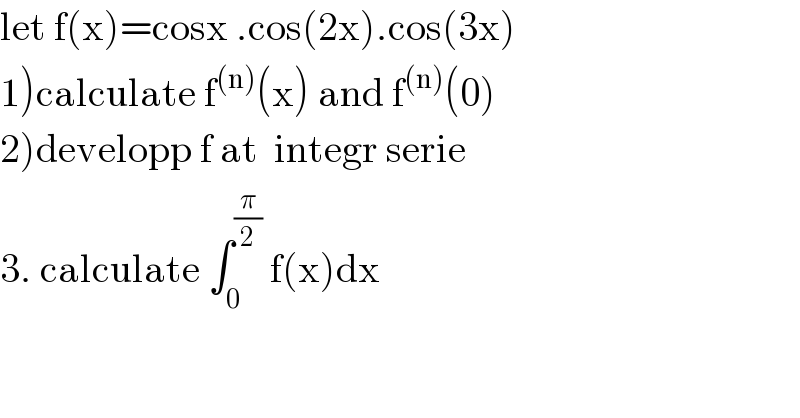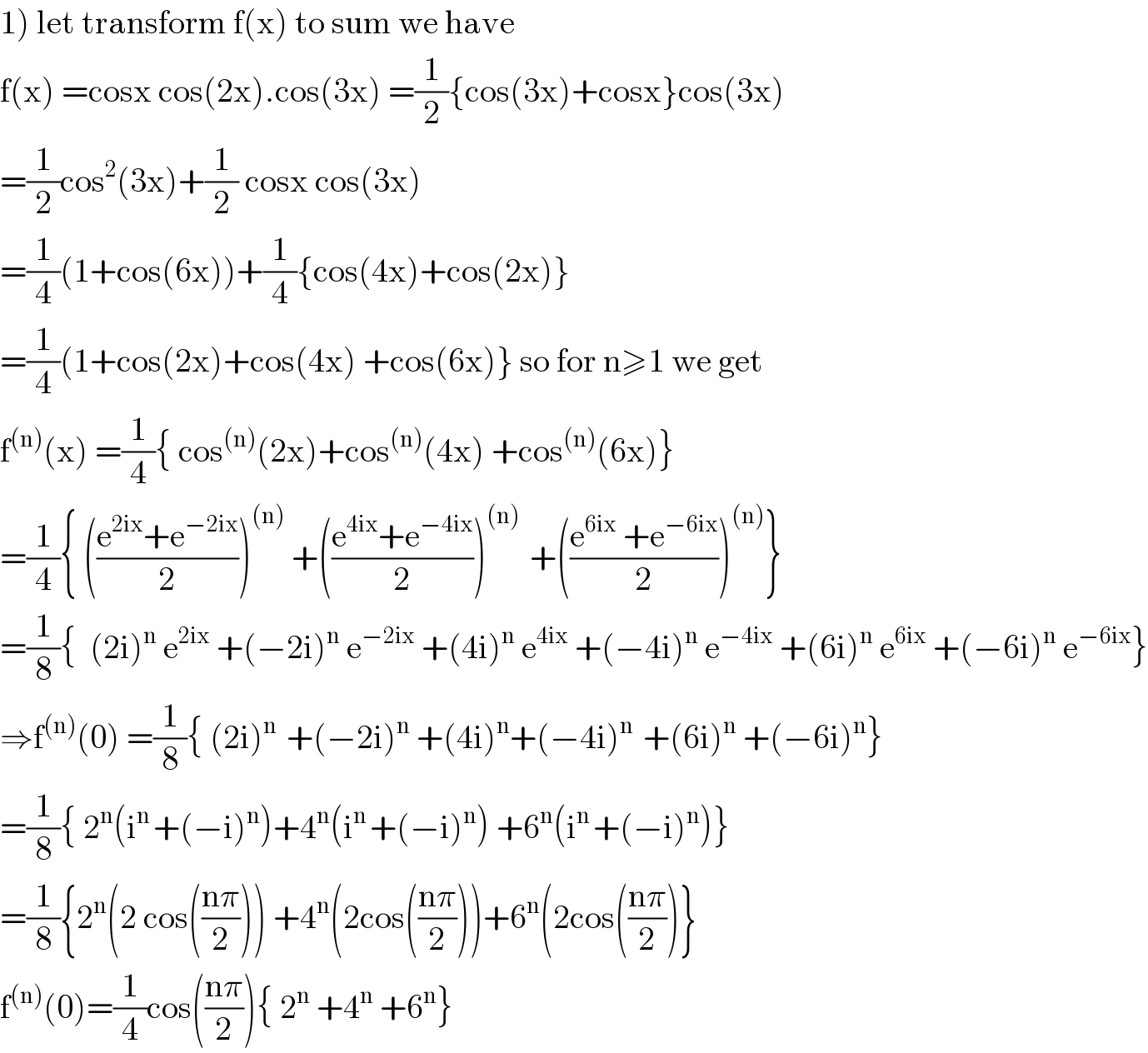Question Number 101500 by mathmax by abdo last updated on 03/Jul/20

Commented by bemath last updated on 03/Jul/20
![(3)∫_0 ^(π/2) f(x) dx =[(1/4)x+(1/(24))sin 6x+ (1/8)sin 2x+(1/(16))sin 4x ]_0 ^(π/2) = (π/8) ■ cos (3x)cos (x)cos (2x)= (1/2)(cos 4x+cos 2x)cos 2x= (1/2)(cos 4xcos 2x+cos^2 2x)= (1/2)((1/2)(cos 6x+cos 2x)+(1/2)+(1/2)cos 4x)= (1/4)cos 6x+(1/4)cos 2x+(1/4)+(1/4)cos 4x](https://www.tinkutara.com/question/Q101513.png)
Answered by Ramajunan last updated on 03/Jul/20
![Nice question Expressing f(x) as the sum of cosines angles cosxcos(2x)cos(3x) ⇒(1/4)(cos(5x)+cosx)cosx ⇒(1/2)cos(5x)cosx+(1/2)cos^2 x ⇒f(x)=(1/4)[cos(6x)+cos(4x)+cos(2x)+1] f^′ (x)=(1/4)[−6sin(6x)−4sin(4x)−2sin(2x)] f^” (x)=(1/4)(−6^2 cos(6x)−4^2 cos(4x)−2^2 cos(2x)] f^((3)) (x)=(1/4)(6^3 sin(6x)+4^3 sin(x)+2^3 sin(2x) f^((n)) (x)=(1/4)(6^n cos(6x+((nπ)/2))+4^n cos(4x+((nπ)/2))+2^n cos(2x+((nπ)/2))] for ∨n f^n (0)=(1/4)(6^n cos(((nπ)/2))+4^n cos(((nπ)/2))+2^n cos(((nπ)/2))) =(1/4)(6^n +4^n +2^n )cos(((nπ)/2)) 2) Don′t understand number 2 Number 3 ∫_0 ^(π/2) cosxcos(2x)cos(3x)dx ∫_0 ^(π/2) f(x)=(1/4)∫_0 ^(π/2) [cos(6x)+cos(4x)+cos(2x)+1] [(1/4)(((sin(6x))/6)+((cos(4x))/4)+((sin(2x))/2)+x)]_0 ^(π/2)](https://www.tinkutara.com/question/Q101579.png)
Commented by abdomathmax last updated on 03/Jul/20

Answered by mathmax by abdo last updated on 04/Jul/20

Commented by mathmax by abdo last updated on 04/Jul/20

Commented by mathmax by abdo last updated on 04/Jul/20
![3) we have f(x) =(1/4){1+cos(2x)+cos(4x) +cos(6x)} ⇒ ∫_0 ^(π/2) f(x)dx =(π/8) +(1/4)∫_0 ^(π/2) cos(2x)dx +(1/4)∫_0 ^(π/2) cos(4x)dx +(1/4) ∫_0 ^(π/2) cos(6x)dx =(π/8) +(1/8)[sin(2x)]_0 ^(π/2) +(1/(16))[sin(4x)]_0 ^(π/2) +(1/(24))[sin(6x)]_0 ^(π/2) =(π/8) +0 +0 +0 =(π/8) ⇒ ∫_0 ^(π/2) f(x)dx =(π/8)](https://www.tinkutara.com/question/Q101674.png)
